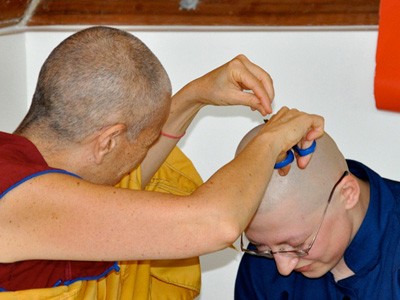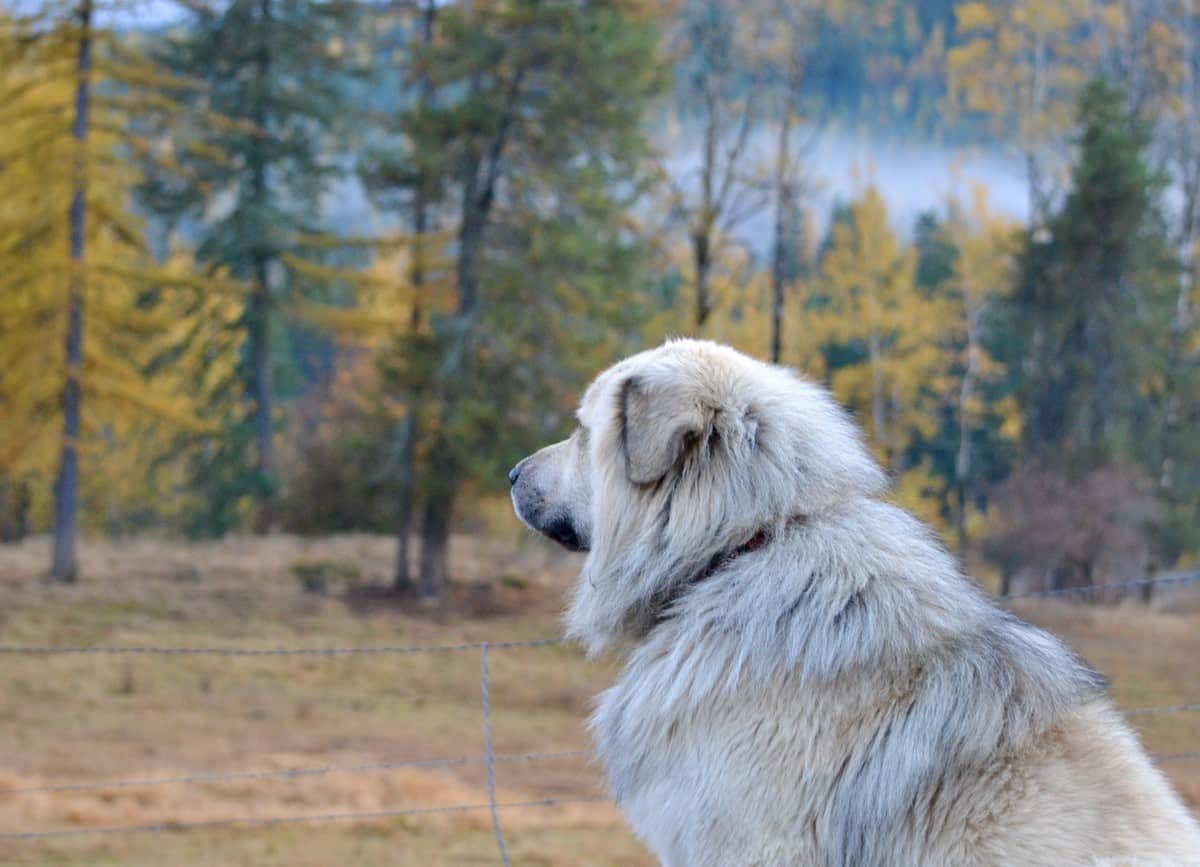Look, Mommy, that lady has no hair!
Look, Mommy, that lady has no hair!

Walking around Green Lake in Seattle one afternoon, I passed a woman with her little girl. The child looked at me and exclaimed, “Look, Mommy! That lady doesn’t have any hair!” Unfazed, I smiled at her. I’m used to it. Although Buddhism is better known in the West now than 20 years ago, people seldom expect a Western woman to be a Buddhist monastic.
When I give talks in high schools, I’m frequently asked, “Why do Buddhists shave their heads?” I respond that not all Buddhists shave their heads, just the monastics. Many people who are Buddhists have long hair; they look and dress like everyone else. It is a person’s personal decision whether or not to become a monastic; no one forces us to do it or makes the decision for us. However, if someone becomes a monastic, he or she adopts a “look.” Just as some occupations entail wearing a uniform so people can identify them, monastics wear a “uniform,” our monastic robes. Part of our appearance is our hair, or rather our lack of it. Why is shaving off our hair part of taking monastic vows?
Shaving our head symbolizes cutting off confusion, hostility, and attachment—what the Buddha called the “three poisonous attitudes.” These three mental toxins poison our well-being and our relationships with others. Confusion makes us ignorant about the causes of happiness and the causes of suffering. Hostility and anger ruin our relationships with others, especially with those we care about the most. Attachment clings to people, things, places, and ideas with the mistaken notion that they will make us happy. Cutting off these three eliminates the causes of our misery. It also frees us to direct our energy to cultivating equanimity, love, compassion, joy, and wisdom in our hearts.
Whenever we monastics shave our head, we think about cutting off our own and others’ confusion, hostility, and attachment. Cutting our hair becomes a way to recall the purpose of our life. In other words, we haven’t become monastics in order to look good, be popular, gain prestige, be rich, or have a lot of possessions. We don’t seek security from family or romantic relationships. We aren’t trying to climb the corporate ladder or become an acclaimed artist or skilled athlete. Instead, our spiritual practice and cultivating the ability to help others are what make our lives meaningful. Our purpose in life is to subdue our afflictive emotions and attitudes and cultivate beneficial ones through practicing the Buddha’s teachings. In addition, to the extent that we are able to, we try to guide others to eliminate the three poisonous attitudes from their minds.
Another reason for shaving our head is that, for most people, their hair is an object of attachment. People fuss a lot about their hair, spending a lot of time trying to get it to look right. They talk about their hair a lot and comment on others’ hair. People who have blonde hair dye it black; those with brown hair want it to be blonde. Those with curly hair straighten it, and people with straight hair curl it. We’re seldom satisfied with our hair or our appearance. Sometimes people think it’s only women who make a big to-do about their hair. That’s not so! Men who don’t have hair buy toupees or lotion to make their hair rejuvenate. They comb their hair a certain way to make it look like they aren’t as bald as they are. They put cream on it, cut it in a stylish way, and dye it. In short, both men and women have a lot of vanity regarding their hair and looks and spend a lot of time and money trying to improve them.
As monastics, we don’t try to impress people by looking good because we understand that relationships based on superficial appearances don’t last long. If someone likes me because I’m attractive, what will happen to their affection when I don’t look so good? When I’m sick? As I age? It’ll disappear because they don’t really care about us as a human being.
In any case, trying to always look good is futile. Our society idolizes youth, yet no one is becoming younger. It’s rather ridiculous that the media and advertising exalt what no one is becoming. We’re all aging. Wrinkles are in the process of arriving, hair is turning gray or it will soon enough. So I’ve given up trying to look good. In fact, I don’t want people to like me because I look good. I’d rather have deep and stable friendships with people who look for inner beauty—what a person has in his or her heart. Thus we monastics are committed to developing our inner beauty because that won’t fade with age. Inner beauty—a kind heart that cherishes others for who they are—will draw others to us, be a base of true friendship, and enable us to be of benefit to others.
What does this have to do with young people? Am I hinting that everyone should shave their head? No! You can still work to cultivate equanimity, love, compassion, joy, and wisdom without shaving your head. But understanding the underlying symbolism of a shaved head—that it is not our outer appearances that matter but our inner beauty—will help you to let go of useless attachments in order to find true, lasting happiness.
Venerable Thubten Chodron
Venerable Chodron emphasizes the practical application of Buddha’s teachings in our daily lives and is especially skilled at explaining them in ways easily understood and practiced by Westerners. She is well known for her warm, humorous, and lucid teachings. She was ordained as a Buddhist nun in 1977 by Kyabje Ling Rinpoche in Dharamsala, India, and in 1986 she received bhikshuni (full) ordination in Taiwan. Read her full bio.


